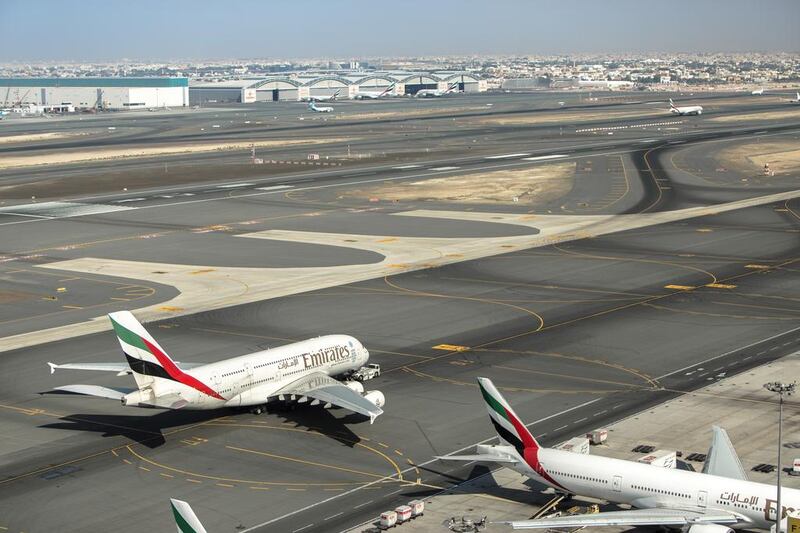Sananda Sahoo
Operating margins for global airlines are expected to come under pressure this year from overcapacity, fuel costs and economic slowdown.
The global industry’s operating margin is expected to touch 9 per cent this year and about 8 per cent next year, from a projected 10.8 per cent last year, according to a report yesterday by the ratings agency Moody’s.
The report did not break down operating margins by region.
“This trend reflects declines in operating profit of the [Moody’s] rated airlines of about 11 per cent this year and 12 per cent in the next, widening from a projected 1.2 per cent contraction last year,” the report said. Moody’s rates 19 airlines globally, none of them from the Middle East.
But analysts also expect the Middle East carriers’ operating margins to come under pressure, as capacity growth is expected to outstrip demand this year, similar to last year.
“The financial impact of weak oil prices is the main cause of slower growth [in passenger demand] in the Middle East,” Moody’s said. This region’s capacity is expected to grow by 10.1 per cent this year, according to Moody’s and Iata. Passenger demand, meanwhile, is expected to grow by 9 per cent. Iata forecasts that Middle East airlines will generate a net profit of US$300 million for a net margin of 0.5 per cent this year, down from a $900m profit expected last year. The decline will be mainly driven by higher costs owing to capacity expansion.
Emirates, which expects to take delivery of more A380s and Boeing 777s this year, said it would continue to expand its global footprint. "Emirates will continue on our strategy of organic growth," said a spokeswoman.
“We will also grow our network as well as layer on frequencies on to existing points.”
“With overcapacity in many markets and soft demand for business travel on oil-related routes, margins [of regional airlines] will be under pressure,” said John Strickland, an aviation analyst at London-based JLS Consulting. “Fuel prices are rising moderately but this is unlikely to be followed easily by increased ticket prices.”
Emirates reported that its operating costs grew by 5 per cent in the first half of its last financial year, during which period the overall capacity increased by 9 per cent. As oil prices stayed low, fuel costs were 10 per cent lower compared to a year earlier. But a slow economy and currency fluctuations led to a decline in its profit.
"Capacity growth is a concern because the damage to yield and profit becomes harder to contain, especially when other rivals are also adding extra seats on popular routes," said Saj Ahmad, an analyst at StrategicAero Research in London. "Given the newer fleets at Gulf airlines, a slight oil price hike won't be damaging or result in fare increases as long as oil stays below $70 a barrel."
This year, the global airline industry’s operating profit is expected to drop by 17 per cent to $48.5 billion, on assessment that assumes an average price of Brent crude at $55 a barrel, compared to $44 a barrel last year, according to Iata.
ssahoo@thenational.ae
Follow The National's Business section on Twitter





